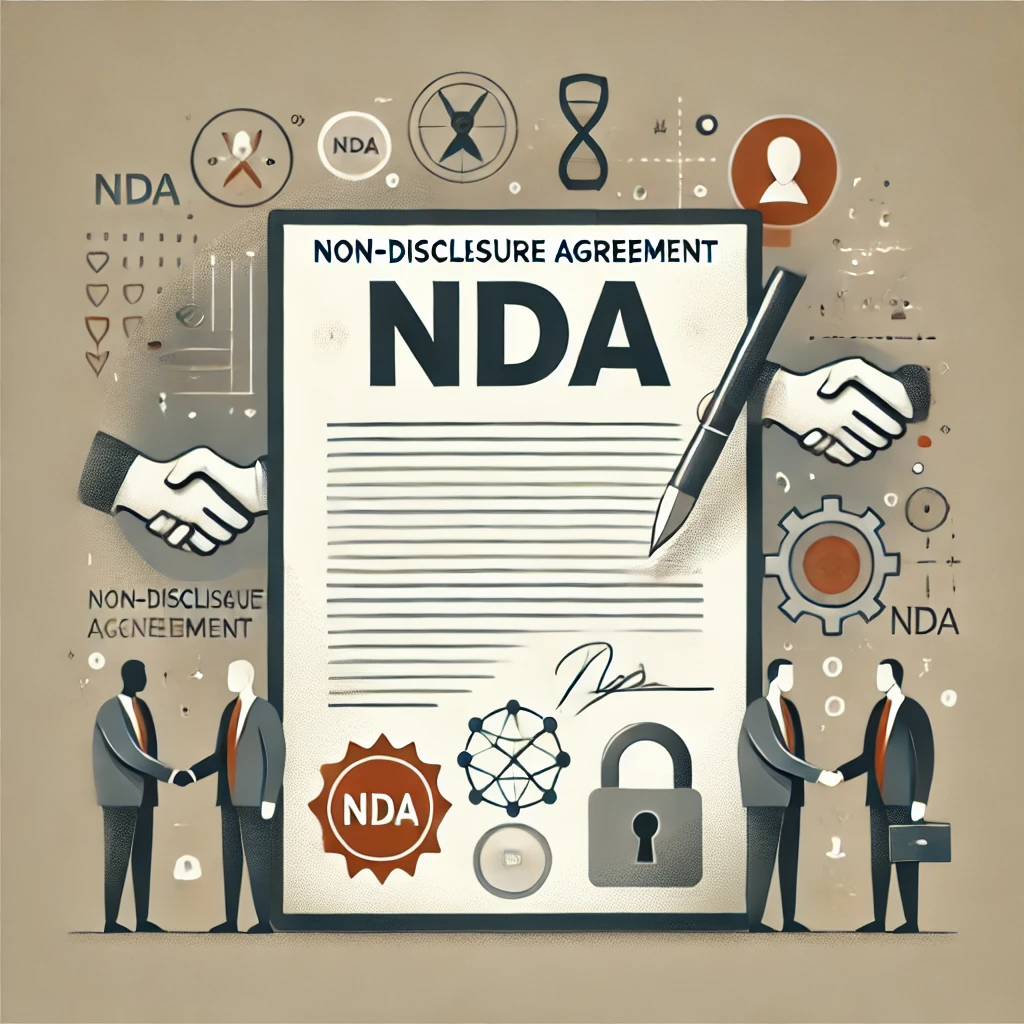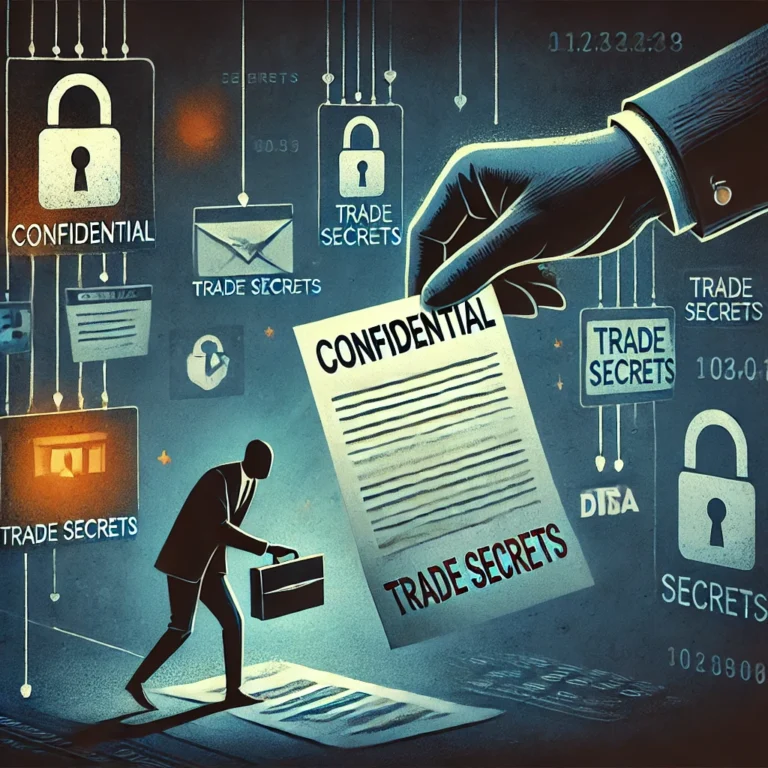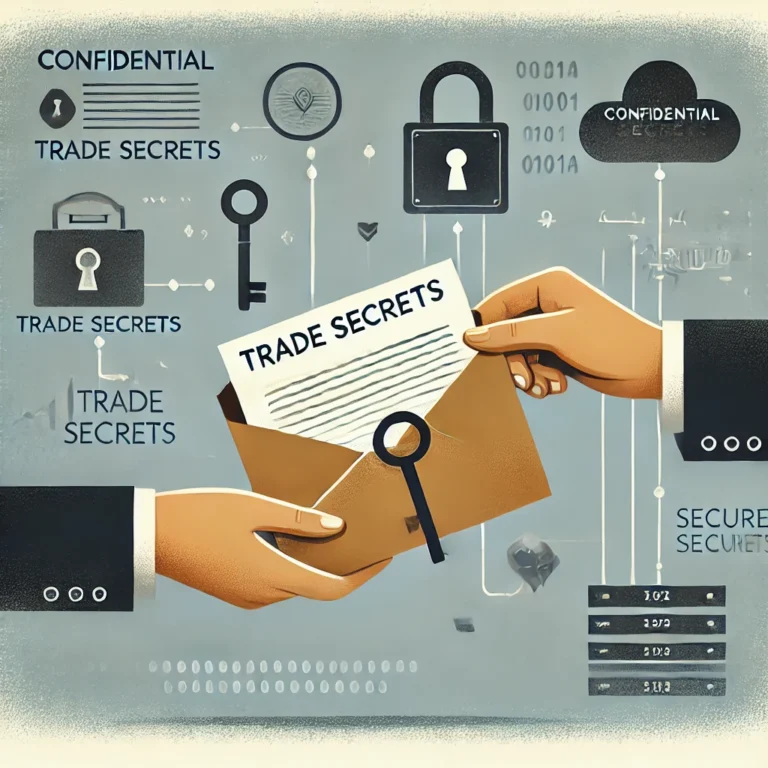Call us now:
Drafting a Non-Disclosure Agreement (NDA) in Vietnam. A Non-Disclosure Agreement is an important legal tool that helps protect a company’s intellectual property and critical information, especially in the current era of open and easily accessible information.

What is a Non-Disclosure Agreement?
A Non-Disclosure Agreement, commonly referred to as an NDA, is a legal agreement between two or more parties to protect confidential or proprietary business information. Through this agreement, the parties agree not to disclose the information shared during their collaboration to anyone other than authorized individuals. It is commonly used when businesses discuss and exchange critical information for product development, business strategies, or during negotiation processes.
Confidentiality Agreement with Employees
A confidentiality agreement with employees is a critical legal instrument designed to safeguard a company’s sensitive information, including trade secrets, client lists, financial data, and proprietary processes, from unauthorized disclosure or misuse. Such an agreement ensures that employees, who often have access to valuable and confidential business information, understand their responsibility to protect it, both during their employment and after they leave the company.
This agreement is typically integrated into the employment contract or drafted as a separate document, which employees must sign upon joining the organization. By signing, employees agree to maintain the confidentiality of any information they are exposed to during their work and acknowledge the legal consequences of failing to comply, which may include financial penalties or legal action.
The scope of the agreement often covers a range of information deemed confidential by the company, such as strategic plans, intellectual property, customer data, technical specifications, and future business initiatives. In some cases, it may also extend to non-competition and non-solicitation clauses to further protect the company’s interests. The confidentiality agreement is a vital tool in mitigating risks, especially in industries where innovation, research, and proprietary knowledge are key to maintaining a competitive advantage.
Confidentiality Agreement with Clients
A Confidentiality Agreement with clients, also known as a Client Non-Disclosure Agreement (NDA), is a legal contract designed to protect sensitive information exchanged between a company and its clients during their business relationship. This agreement ensures that any proprietary or confidential data shared by either party is kept secure and not disclosed to unauthorized individuals or third parties. Such agreements are particularly vital in industries where client information, trade secrets, or intellectual property are at risk of exposure or misuse.
The main purpose of this agreement is to establish trust and clarity in how sensitive information will be handled. It typically outlines the specific types of information considered confidential, the duration for which confidentiality must be maintained, and the consequences for any breach of the agreement. In most cases, it binds the client to maintain confidentiality concerning technical details, business strategies, financial reports, customer data, or other sensitive information shared in the course of their collaboration.
How is a Confidentiality Breach Handled?
When a breach of confidentiality occurs, it can have serious consequences for a company, potentially exposing sensitive information and causing financial, reputational, or legal harm. The process of handling such a breach typically follows specific procedures outlined in the confidentiality agreement (such as a Non-Disclosure Agreement, or NDA) and in accordance with relevant legal frameworks. Below is a detailed guide on how breaches are handled.
1. Identify the breach
The first step is to thoroughly assess the extent of the breach. This involves determining:
- What specific information has been leaked (e.g., trade secrets, client data, financial reports).
- The scope of the exposure—whether it was shared with a single unauthorized party or publicly disclosed.
- The potential consequences of the leak on the business and its stakeholders, such as competitors gaining access to proprietary information or customer trust being compromised.
To support any potential legal claims, it is critical to collect all available evidence related to the breach. This may include:
- Communications, emails, or documents that indicate the unauthorized disclosure of information.
- Logs, records, or technical data showing when, where, and how the information was accessed or shared.
- Testimonies from witnesses or individuals involved.
2. Respond quickly
Once the breach has been identified, swift action is required. The appropriate internal and external parties should be notified, including:
- Company leadership and legal teams: Internal reporting is crucial to initiate the investigation and response processes.
- Security teams: Cybersecurity and IT teams may need to assess whether the breach was caused by a technical vulnerability or unauthorized access.
- External parties: In some cases, regulatory authorities (e.g., data protection agencies) may need to be informed, as well as customers or clients if their data has been compromised, in compliance with data protection laws such as the GDPR.
To contain the breach and prevent further exposure, several immediate actions can be taken, such as:
- Revoking access to systems or documents where the breach occurred.
- Resetting passwords or disabling accounts that may have been compromised.
- Strengthening network security to prevent future unauthorized access.
- Ensuring that the confidentiality agreement is being enforced by halting any continued breaches or leaks.
3. Legal action
Depending on the severity of the breach and the terms of the NDA, the affected party may seek compensation for any damages incurred. This may include:
- Direct financial losses: If the breach results in lost business or clients.
- Indirect damages: Harm to the company’s reputation or competitive position.
- The agreement may specify liquidated damages (a predetermined amount) or the actual loss that has occurred due to the breach.
If the violation of confidentiality is severe, the injured party may need to take legal action. This could include:
- Filing a lawsuit: Initiating court proceedings to recover damages or enforce the terms of the agreement.
- Injunctions: Seeking a court order to immediately stop the violating party from further disclosing or using the confidential information.
- Arbitration or mediation: In some cases, the agreement may require resolving disputes through arbitration, which could be faster and more cost-effective than traditional litigation.
In certain jurisdictions, legal statutes, such as intellectual property or trade secret laws, may also provide additional avenues for redress if the breach pertains to specific types of protected information.
4. Review and improve
To prevent future breaches, a detailed review of how the breach occurred is necessary. This can involve:
- Identifying the vulnerabilities that led to the breach, whether they were related to lax security protocols, human error, or system weaknesses.
- Reviewing how confidential information is stored, accessed, and shared within the organization.
Once the cause of the breach is understood, companies should take steps to strengthen their confidentiality measures:
- Update security protocols: Implement stronger cybersecurity measures, such as encryption, multi-factor authentication, and stricter access controls.
- Reinforce training for employees: Ensure that all employees are well-informed about the importance of confidentiality and the proper handling of sensitive information.
- Revise contracts and agreements: If the existing NDA or confidentiality clauses were unclear or insufficient, update them to be more comprehensive, specifying clearer definitions of confidential information and consequences for breaches.
Going forward, organizations should implement ongoing monitoring processes to ensure compliance with confidentiality agreements. This may involve conducting regular audits, tracking data access, and ensuring all employees and third-party partners are adhering to confidentiality obligations.
Handling a breach of confidentiality requires a structured and prompt response. The steps outlined above are designed to not only contain the immediate fallout from the breach but also to address its root causes and prevent future occurrences. By having a well-drafted confidentiality agreement in place and taking swift action in the event of a breach, companies can protect their sensitive information and minimize the damage caused by unauthorized disclosures.
Drafting a Non-Disclosure Agreement (NDA) in Vietnam
DCNH Law, with a team of professional lawyers in Nha Trang, Khánh Hòa, is proud to offer you the most comprehensive and effective Non-Disclosure Agreement (NDA) drafting services. In today’s digital age, information is the most valuable asset of every business. Protecting sensitive information and trade secrets is crucial for maintaining competitiveness and ensuring sustainable growth.
Our services include:
- Drafting Non-Disclosure Agreements (NDAs): We provide consultation and assistance to clients in identifying the scope of information that needs to be protected, drafting detailed and accurate NDAs, and ensuring compliance with current legal regulations.
- Review and Assessment of Existing Agreements: We evaluate and review a company’s existing confidentiality agreements to ensure they meet the necessary security and legal standards, offering recommendations for improvements if needed.
- Resolving Confidentiality Disputes: We represent clients in disputes related to confidentiality agreement breaches, from negotiations and mediation to litigation in court. We protect your rights to the fullest.
- Ongoing Legal Advisory: We offer regular legal advisory services, helping you stay informed of the latest regulations on information security and implement effective protective measures.
DCNH Law is not only a legal partner but also a trusted companion in your journey to protect and develop your information assets. Let us help you safeguard your core values and build a strong foundation for future success.
Contact Us Now:
DCNH LAW
Address: 38B Tran Nhat Duat, Phuoc Hoa ward, Nha Trang city, Khanh Hoa province, Vietnam.
Phone: (+84) 343320223 – 974278893
Email: dcnh.law@gmail.com




